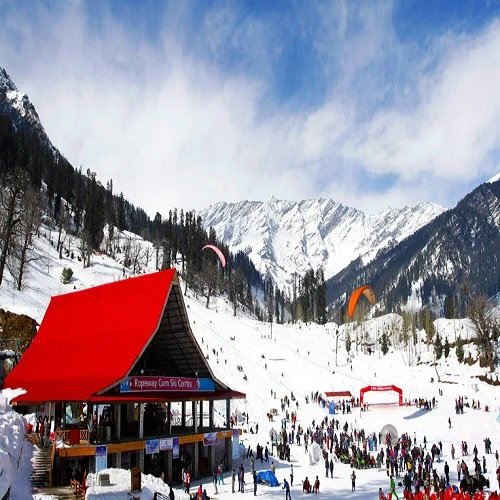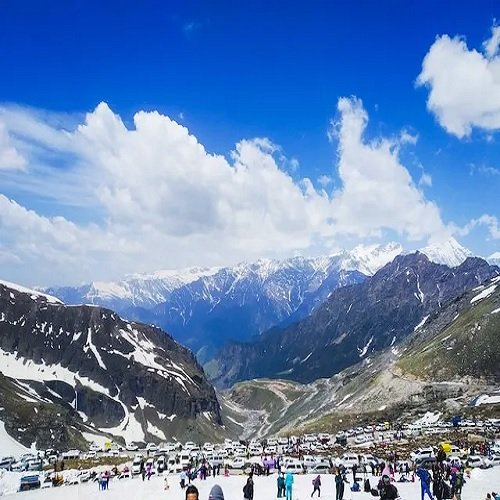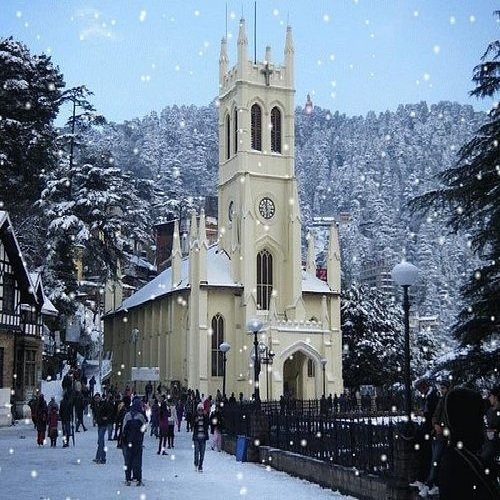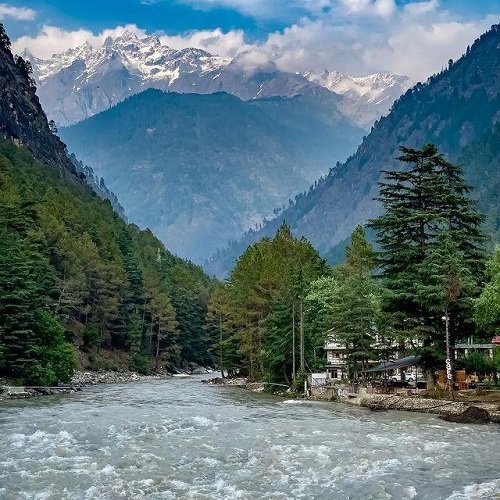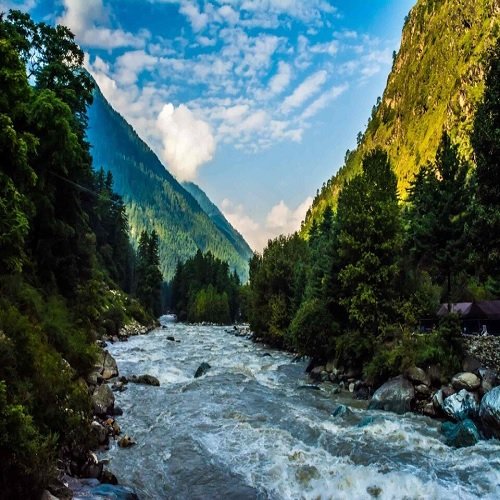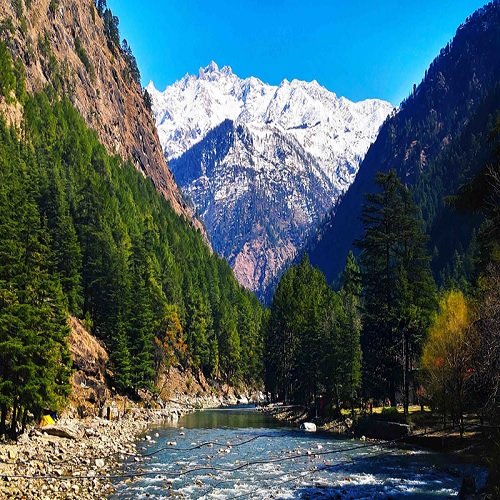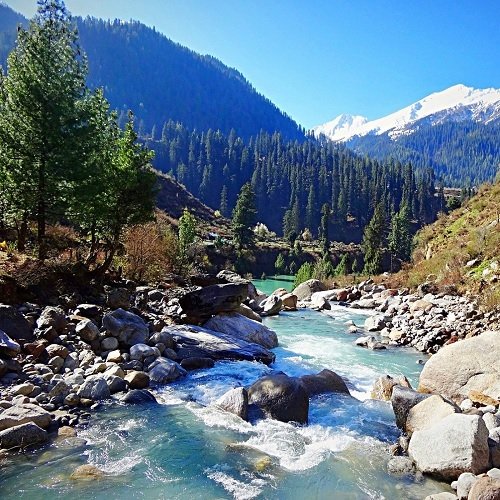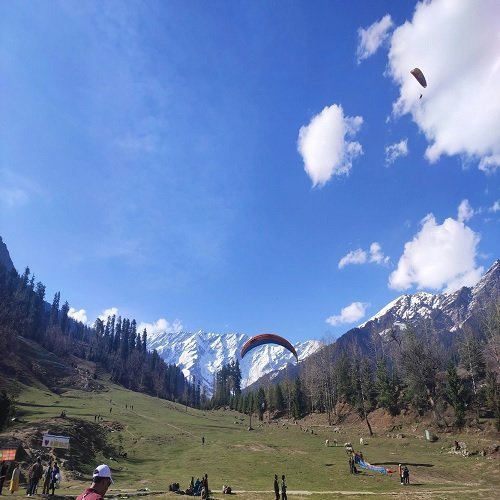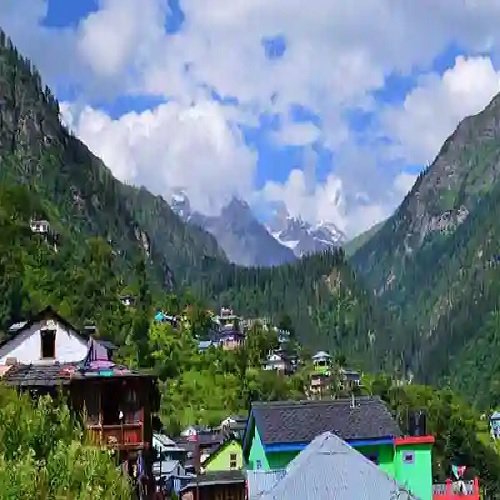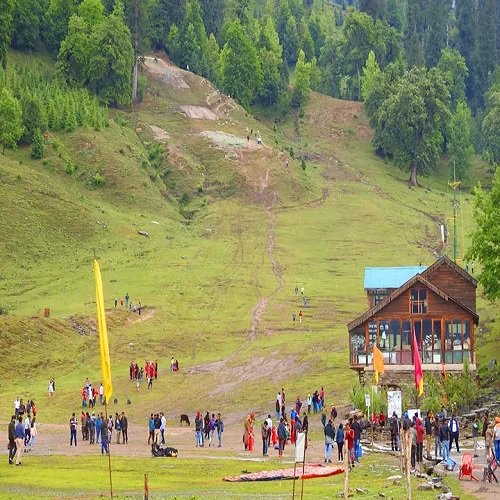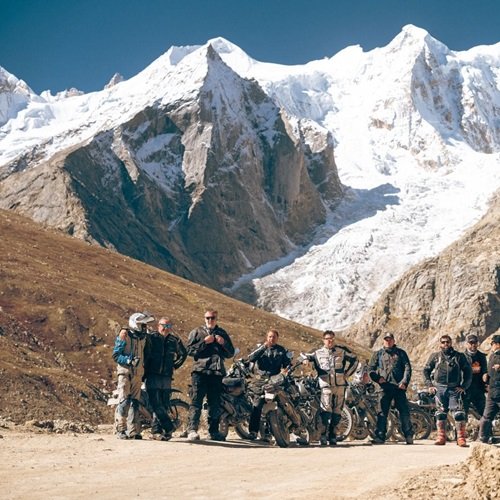Manali shimla tour
Overview
Embarking on a tour of Shimla and Manali offers a delightful blend of natural beauty, adventure, and cultural experiences. Here's a suggested itinerary to help you plan your trip:
Itinerary
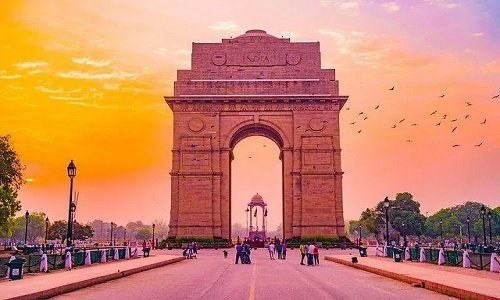
We will pick you up from Delhi at night and drive towards Manali in a cab or Volvo Bus. It will take around 15 to 16 hours to reach Manali in the morning.
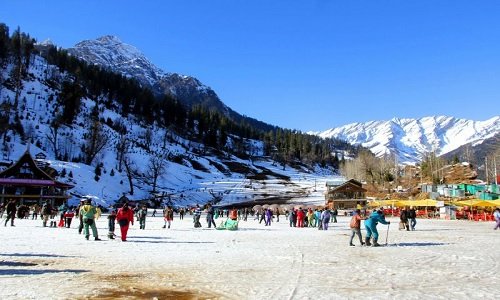
After reaching Manali you will check in to the hotel. After freshening up you will visit local places like Mall Road, Old Manali, Clubhouse, Hadimba Temple, Dhungri van vihar.
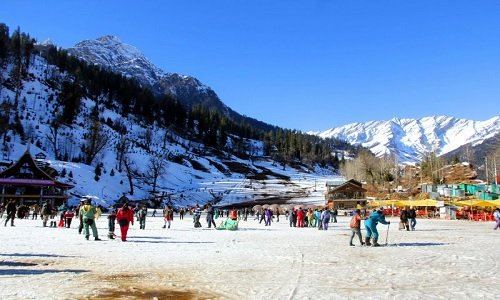
After the Morning tea and Breakfast, you will visit Solang Valley and Atal Tunnel. You can enjoy various adventure activities like Zipline, Paragliding, Skiing, Yak Riding, Quad Biking etc.
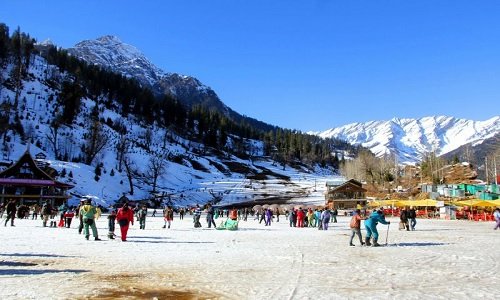
After the Morning tea and Breakfast, you will check out and depart to Shimla. Upon arrival, you will check in to the hotel and in the evening go to nearby places like Jakhu Temple, Mall road, The Ridge, Christ Church and Scandal Point.
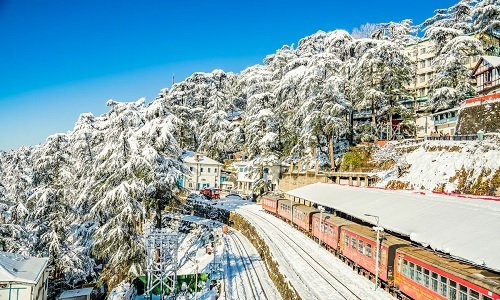
Today after breakfast you will depart to Kufri where you can enjoy activities like skiing (in winters) and Horse riding. Later you can visit Indian Institute of Advanced Study, Viceregal Lodge and Botanical Gardens.
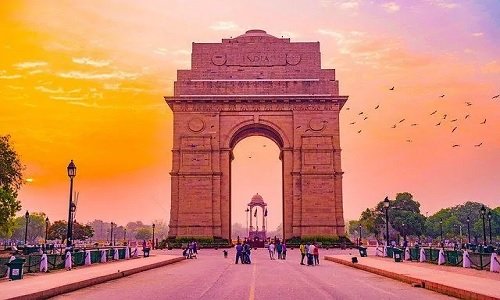
After having your breakfast you can explore the hill station or visit the local market on your own or go to any place which you missed during the tour. In the evening you will depart to Delhi.
FAQ
Good Shoes (preferred waterproof). T-shirts, pants, and Thermals as required. Ear Muffs/Warmer. Warm Cap and Gloves. Jacket (2 units). Raincoat or Umbrella. A medium backpack that is lightweight and easy to carry. Sunscreen lotion/Cold Cream (optional). Toilet Kit (Toothpaste, Brush, handwash, Toilet roll, moisturizer, etc). Toilet Paper. Hand Sanitizer. Power bank.
The trip will start only after the payment of the full amount. Make sure you make all the arrangements beforehand. Vehicles are not allowed beyond the ridge. You have to walk or climb stairs to reach Mall Road, Christ Church, Scandal point, and Jakhu Temple. In an exceptional case, if the mentioned hotel is not available, we may shift you to another similar hotel. Check-in/check-out time at all the properties will be at 1200 hrs (Noon). Some properties may not allow early check-in. Food Service will be available from 8:00 am to 9:30 am and 8:30 pm to 10:00 pm. You will get hot water in showers for a few hours in the morning. Kindly ask the receptionist about the timings in advance. Room heaters are available at the hotel for an extra cost. Triple Sharing does not necessarily mean Three Separate Beds. It can have one double bed and one rollaway bed. The vehicle will be provided as per the itinerary, any additional sightseeing not mentioned in the Itinerary will be charged extra
About Shimla: Shimla, also known as Simla, is the capital city of the Indian state of Himachal Pradesh. In 1864, Shimla was declared the summer capital of British India, succeeding Murree, northeast of Rawalpindi. After independence, the city became the capital of Punjab and was later made the capital of Himachal Pradesh. It is the principal commercial, cultural and educational center of the hilly regions of the state and is described as one of the most popular hill stations in India. About Manali: Manali is a high-altitude Himalayan resort town in India’s northern Himachal Pradesh state. It has a reputation as a backpacking center and honeymoon destination. Set on the Beas River, it’s a gateway for skiing in the Solang Valley and trekking in Parvati Valley. It’s also a jumping-off point for paragliding, rafting, and mountaineering in the Pir Panjal mountains, home to the 4,000m-high Rohtang Pass. How To Reach Shimla By Air: The nearest airport is at Jubbarhatti, 35 km from Sh
Shimla is located in the northwest Himalayan region of India. It is the capital of the northern Indian state of Himachal Pradesh.
The best time to visit Shimla is in the summer months of April to June. The weather is warm and pleasant during this time, making it ideal for outdoor activities.
Shimla experiences four seasons namely summer, winter, spring, and autumn. The best time to visit Shimla is from March to June when the weather is pleasant and cool. The best season to visit Shimla is during the months of April to June. The weather is pleasant during this time and the temperature ranges from 15 degrees Celsius to 30 degrees Celsius.
The best time to visit Shimla is between October and February when the weather is cool and pleasant.
Shimla is well connected by road. Buses are available from Delhi, Chandigarh, Kalka, Ambala, and other places. But, the best way to reach Shimla is by taking the toy train from Kalka. You can also drive to Shimla in your own vehicle or can book a cab.
The best time to visit Manali is from mid-April to mid-October. These months offer the most pleasant weather, with warm days and cool nights. The average temperature during this time is between 15°C and 20°C.
Why Choose Fun Day Tour
- All in one platform
- Never Settle for Average
- Truly Unique Experiences
Confirmation Policy
- Upon booking, the traveller will receive a confirmation voucher via email, within 24 hours.
- In the special cases of slots not being available, feasible alternatives will be provided to the customer, in regards to the customer’s preference. In such cases, a new voucher would be sent via email, consisting of the new travel details.
Refund Policy
- Any refund applicable will be processed within 7 business days.
Cancellation Policy
- Any cancellation made 25 days before the date of departure, would levy 15% of the total tour cost as cancellation charges.
- Any cancellation made within 15-25 days before the date of departure, would levy a 25% of total tour cost as cancellation charges.
- Any cancellation made within 7-15 days before the date of departure, would levy 50% of the total tour cost as cancellation charges.
- Any cancellation made within 0-7 days before the date of departure, would levy 100% of the total tour cost as cancellation charges.
- Due to any restrictions such as sudden government policies or regulations, health hazards, medical emergencies, or unprecedented weather conditions, activities and tours may be nonoperational and be canceled. In cases such as these, operators will attempt to cater to the traveler as an alternate, which is feasible in nature. However, any refund would not be catered.
Advisory
- Stay hydrated: Carry enough water and other fluids to stay hydrated throughout the yatra. It's important to drink water regularly, especially at higher altitudes.
- Check the weather: The weather conditions in the Kedarnath region can be unpredictable, so it's important to check the weather forecast before starting your journey. Avoid traveling during the monsoon season (July to September) when the region experiences heavy rainfall and landslides.
- Acclimatize properly: Kedarnath is located at an altitude of over 11,000 feet, so it's important to acclimatize properly. Spend a couple of days in nearby towns like Guptkashi, Gaurikund, or Sonprayag before starting the yatra.
- Pack wisely: Pack light and carry only the essentials. Make sure you have enough warm clothes, sturdy shoes, sunscreen, and a first-aid kit. You can also rent or buy trekking equipment from nearby towns.
- Follow the Yatra route: Stick to the designated Yatra route and avoid taking shortcuts. This helps preserve the fragile ecosystem of the region and minimizes the impact on the environment.
- Respect local customs: Kedarnath is a holy site for Hindus, and it's important to respect the local customs and traditions. Dress appropriately and seek permission before entering any religious sites.
- Hire a guide/porter: Hiring a guide or porter can make the Yatra easier and safer. They can provide valuable information about the Yatra route, carry your luggage, and help in case of an emergency.
- Be prepared for emergencies: The Kedarnath Yatra is remote, and medical facilities are limited. Carry a first-aid kit and any necessary medications. It's also a good idea to have a satellite phone or other communication device in case of an emergency.
- Leave no trace: Respect the environment and leave no trace behind. Carry all your trash and dispose of it properly at the end of the yatra.

